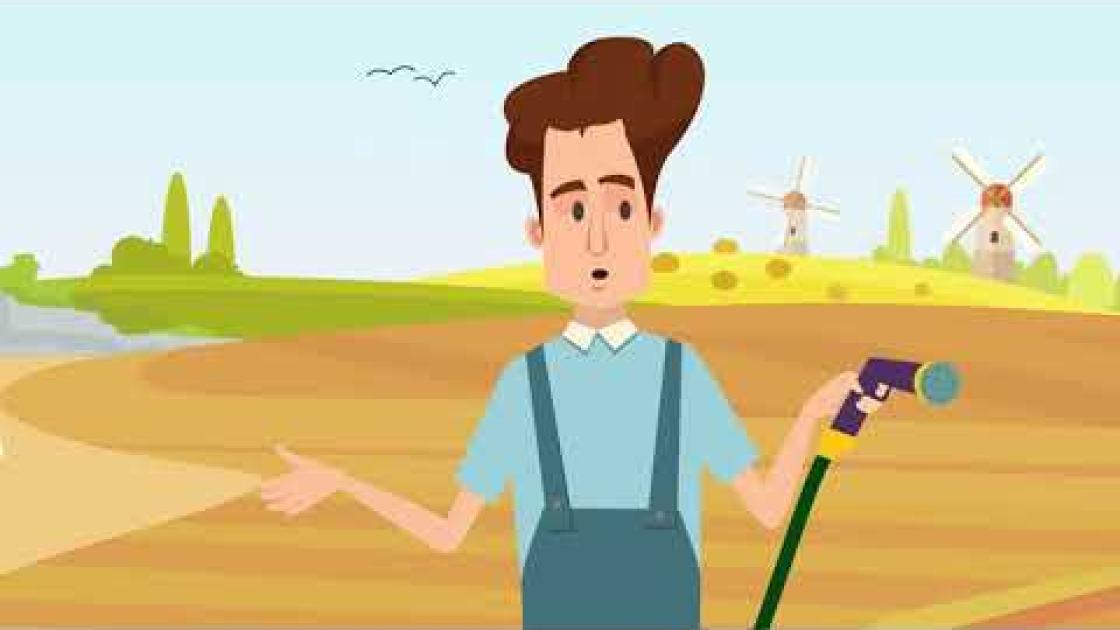B-WaterSmart: towards a water-smart economy and society
In the European Horizon 2020 ‘B-WaterSmart’ project, 6 Flemish partners are working together with 30 partners from several other European countries to boost the transformation to a water-smart economy in coastal regions. Flanders features two case studies, the one looking at alternative water sources, the other at the smart management of rainwater. Aquafin is involved in both projects.
This water-smart approach is being used to develop new business models for the circular economy.
Case study 1 - Alternative water sources
The De Blankaart water production centre in Diksmuide plays a key role in this line of research. Together with drinking water company De Watergroep and KWR, Aquafin is investigating how treated wastewater (effluent) can be processed into drinking water when surface water or groundwater is in short supply.
In operation at the Woumen (Belgium) sewage treatment plant since March 2023, a pilot installation is testing various techniques, such as ultra-filtration, reverse osmosis, activated carbon filtration and UV-based disinfection. For each of these techniques, we are investigating how they behave when applied to effluent. For example: how often should membranes be cleaned? Which pre-filters are needed? How do techniques respond to varying quality (e.g., rainy weather)? The techniques can be linked or bypassed, allowing a range of combinations.
To measure is to know
The main challenge associated with producing drinking water from treated wastewater is the presence of nutrients, salts, pathogens, drug residues and other micropollutants. Therefore, the impact on the elimination of these different substances is being identified for each technique (or combination thereof).We are also looking at the impact on E.coli, an indicator organism.
In addition to the quality aspect, a technique's efficiency is also being considered, with the composition of residual streams (backwash and concentrate), as well as the electricity and chemical consumption of the techniques, being determined.
The data obtained will ultimately result in a concrete and detailed understanding of how different techniques work. We intend to make broader use of this knowledge in other projects.
The pilot installation in Woumen can treat 1 - 2 m3 of treated wastewater per hour, whereby the treated water is currently being discharged into the river along with the effluent. The residual streams are sent back for biological treatment (one step in the wastewater treatment process). At present, this project does not thus feature any real water reuse. Testing is set to continue until early 2024.
Case study 2 - Smart rainwater management
In the Mechelen region, the City of Mechelen, together with Aquafin, VITO and the Research Station for Vegetable Production, is investigating how rainwater from a separate sewage system can be used for agriculture and horticulture. The smart management of a buffer basin allows the water to be retained longer, flowing into a watercourse at a slower pace. The buffered water is then treated before being used in local fields via subirrigation, i.e., the water flows about half a metre underground, where it is absorbed by the plants and at the same time replenishes groundwater. Such smart farming solutions are valuable not only for large farms, but also for market gardeners located close to cities.
European knowledge portal
A freely accessible knowledge platform was launched in December 2021 as part of the B-WaterSmart project: ‘Knowledge Portal for Circular Economy and water smartness’. It targets public utilities, public authorities and industry in search of solutions in the field of circular processes and water reuse.

